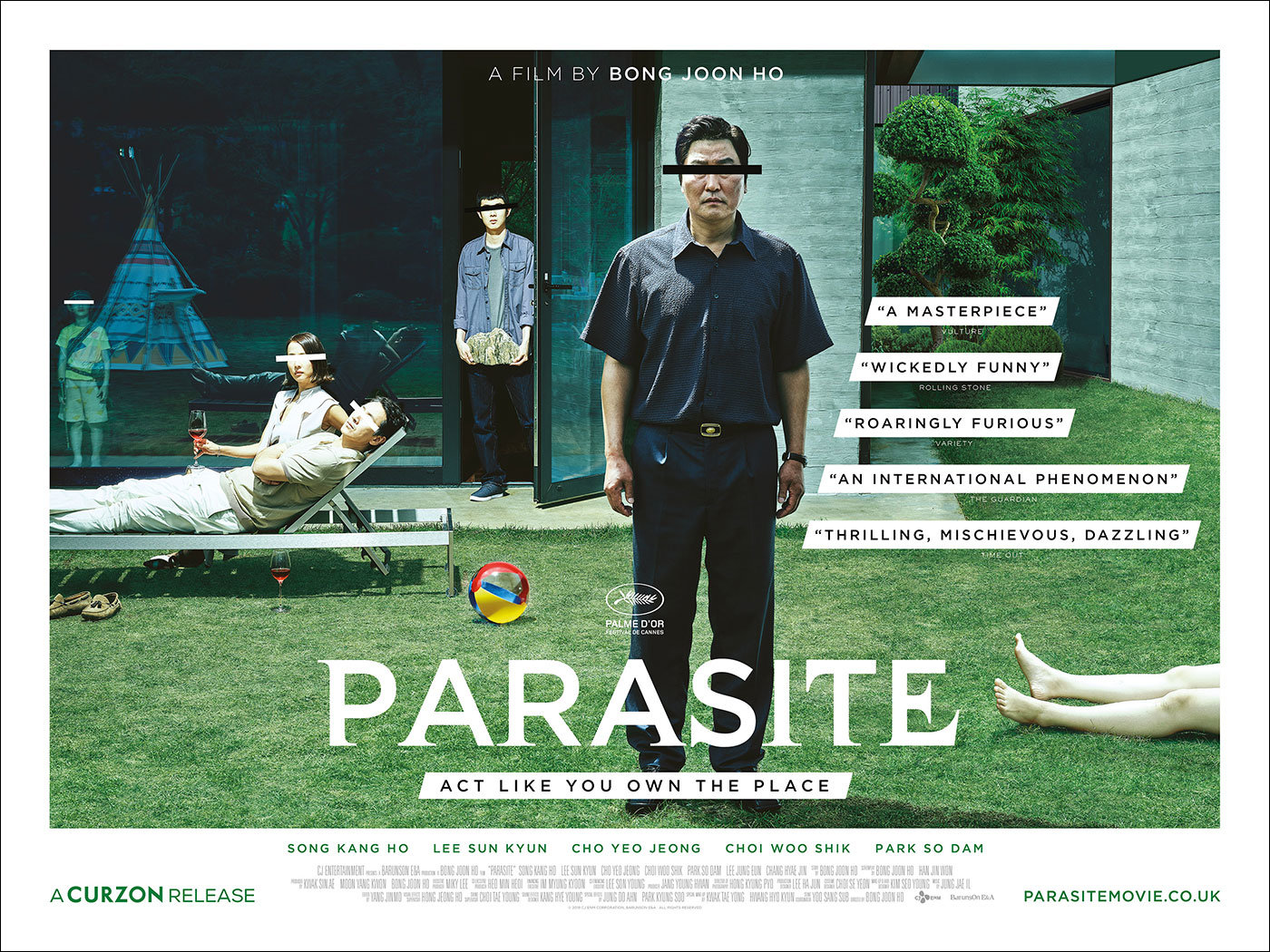Miriam El Abbassi | Arts Editor
Featured Image: Parasite is the first foreign language film to win the title of Best Picture at the 2020 Academy Awards. | Courtesy of MUBI
Parasite (2019), directed by Bong Joon-Ho, broke many barriers within the world of cinema, and even set new records during this past awards season by being the first foreign language film to win the title of Best Picture at the 2020 Academy Awards.
The film follows the lives of the Kim family, who live in poverty on the outskirts of Korean society, doing odd jobs to get by. By a stroke of luck, the Kim family manages to con their way into becoming servants for the Parks, who in contrast are incredibly wealthy. Things begin to take a turn when outside forces threaten to expose the Kims’ web of lies.
On the surface Parasite feels like a dark comedy with hints of thrilling elements, keeping the audience on the edge of their seats as they watch the story unfold.
However, Parasite is much more than a poor family trying to weasel their way into the lives of the rich. It is a social commentary on the structures of inequality that exist, as well as an introspective look at the class struggle within today’s society.
This film is loaded with symbols and metaphors, one of the most important being the presence of stairs that creates a separation between the upper and lower class.
The Kim family lives in a semi basement apartment, meaning that the majority of their living space is below ground while the top sliver is above. Their place exists at the bottom of a sloping street, while the Park family’s home seems to exist on top of a hill.
This division is further expressed when the Kims’ apartment (as well as their entire street) is flooded because of torrential downpour, yet the Parks’ home is unaffected because they live high above ground.
The term “parasite” is defined by the Oxford English Dictionary as: “An organism that lives in or on an organism of another species (its host) and benefits by deriving nutrients at the other’s expense.”
It’s easy to take the film at face value and perceive the Kim family as parasites, as they leech off their rich employers, but couldn’t the same be said about the Park family?
They exploit the Kim family for their services, and rely on them to complete menial day-to-day tasks. In essence, the Parks benefit from the Kims just as much as the Kims benefit from the Parks, creating a symbiotic relationship.
The film does a good job of implicitly stating who exactly are the parasites, as a strong argument can be made for either family. Depending on the perspective taken, each family can become the villain, and maybe they both are.
The film, Parasite, may raise more questions than it cares to answer.

